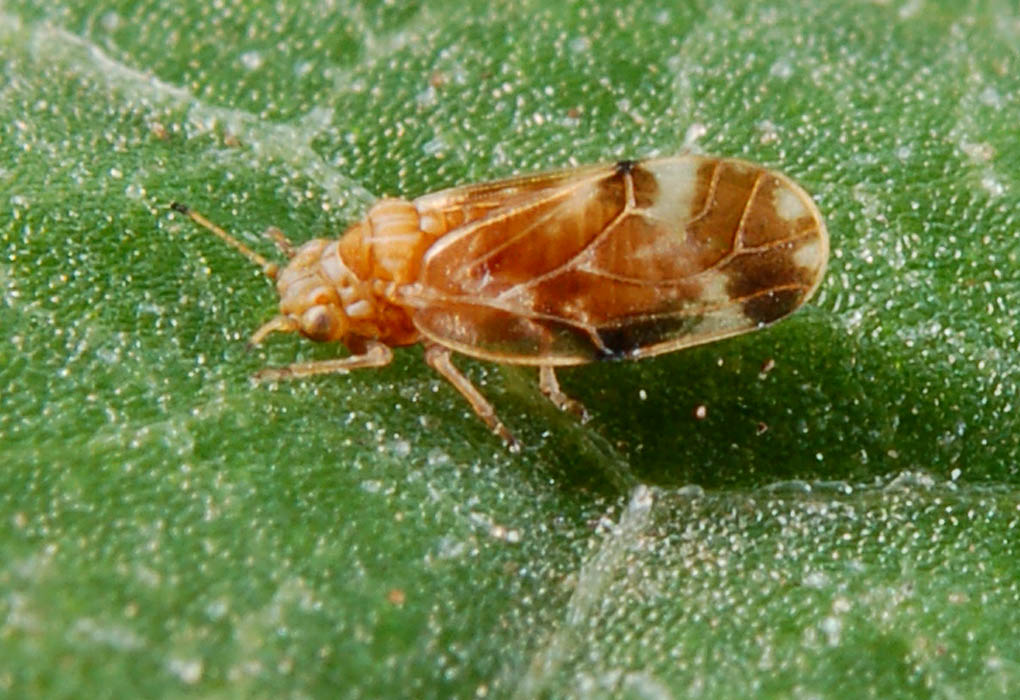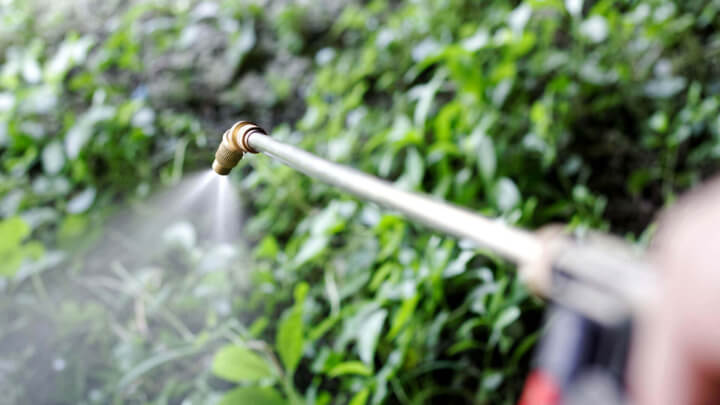

Can Psyllids Control Japanese Knotweed? What to Know About Aphalara Itadori
Japanese knotweed is one of the UK’s most aggressive invasive species. Fighting it isn’t cheap. Homeowners, councils and developers spend over £40 million a year trying to control or remove it. But what if the solution isn’t chemical, but biological?
Enter the psyllid: Aphalara itadori. This tiny sap-sucking insect from Japan has been at the centre of a decades-long research project aimed at reducing knotweed’s spread using nature’s own defences. But how effective is it?
This blog explores how psyllids work, why the research has been challenging and what this means for people dealing with knotweed today.
What Is Aphalara Itadori?
Aphalara itadori is a type of psyllid, a tiny insect found in Japan that feeds exclusively on Japanese knotweed. Scientists chose it for testing because:
- It targets only Japanese knotweed
- It damages the plant by feeding on sap and curling its leaves
- It could slow down the plant’s growth and spread over time
This type of natural control method is known as a biocontrol. The goal isn’t to kill knotweed completely, but to weaken it enough that it can no longer dominate local ecosystems.
Why Look at Biocontrols?
In Japan, knotweed doesn’t cause major problems. That’s because a range of insects and fungi naturally keep it in check. In the UK, these predators don’t exist, so knotweed grows without limits.
A successful biocontrol like Aphalara itadori could:
- Reduce the speed and scale of knotweed growth
- Support long-term management without relying on herbicides
- Lower the cost of treatment over time
But it comes with challenges.

What Happened with Early Psyllid Trials?
Initial tests in UK field sites showed some promise. Psyllids were able to feed on the knotweed and cause leaf damage. This reduced the plant’s ability to photosynthesise and spread.
But once winter arrived, most psyllid populations died out. The insects had come from Mount Aso in southern Japan, a region with a very different climate to the UK. They simply couldn’t survive the cold, wet conditions.
Finding a Better Match
In 2019, researchers at CABI began looking for psyllids from areas more like the UK. They found a new strain in Murakami, a coastal Japanese city with cooler winters and higher humidity.
This new population showed stronger survival and caused more visible damage to knotweed leaves. Field trials began in the UK, Netherlands and Canada to see if this version of the psyllid could thrive long term.

Can Psyllids Eradicate Knotweed?
No, and that’s not the aim. Even in Japan, knotweed still exists. The insects keep it under control but don’t remove it entirely.
Psyllids can:
- Reduce new growth
- Limit the plant’s ability to spread
- Make other treatments more effective
They cannot:
- Remove knotweed completely
- Replace herbicide or excavation
- Guarantee success in all locations
Are Psyllids Safe to Release?
Yes. Before any release, biocontrol agents are tested to make sure they:
- Feed only on the target plant
- Won’t harm native wildlife
- Can’t become invasive themselves
Aphalara itadori passed these safety tests. So far, all releases have been small-scale and closely monitored.
Widespread use will only be considered if long-term survival and control results continue to look promising.
Why Not Just Use Herbicides?
Glyphosate remains the most effective option for complete knotweed removal. But herbicide use has limitations:
- It requires licensed application
- It can affect nearby plants
- It may need repeat treatments
- It isn't suitable near waterways or conservation areas
Biocontrols could reduce the need for herbicide over time. But at the moment, they’re not ready to replace professional treatment.

What Could the Future Look Like?
If the Murakami psyllids can survive UK winters and reproduce in the wild, they could:
- Slow the spread of new infestations
- Reduce the size and strength of existing patches
- Support a more sustainable, lower-cost treatment model
But this will take years. Right now, biocontrol is still in the research phase and cannot be relied on as a sole treatment method.
Final Thoughts
Psyllids like Aphalara itadori offer a promising future in the fight against Japanese knotweed. But for now, they are a long-term hope, not a short-term solution.
If you need to control knotweed on your land, the most effective option is still professional treatment using approved herbicides and disposal methods.
Frequently Asked Questions
What is Aphalara itadori and how does it affect Japanese knotweed?
Aphalara itadori is a psyllid insect that feeds on the sap of Japanese knotweed. By damaging the leaves and slowing photosynthesis, it helps reduce the plant’s ability to grow and spread.
Is it safe to release psyllids into the UK environment?
Yes. Before release, psyllids undergo strict testing to confirm they only target knotweed and pose no threat to native plants, insects or ecosystems.
Will psyllids eliminate knotweed completely?
No. Psyllids are intended to suppress knotweed growth, not eradicate it. They are part of a long-term control strategy and work best alongside professional treatment.
How long until psyllid biocontrol is widely used?
Researchers are still studying whether the insects can survive UK winters and establish self-sustaining populations. Widespread use could take several more years.
About the Author
Adam Brindle is Founder and CEO of Grounds Care Group, the parent company of Japanese Knotweed Specialists. With over a decade of experience in invasive species control, Adam is known for his work advancing sustainable solutions to knotweed management.